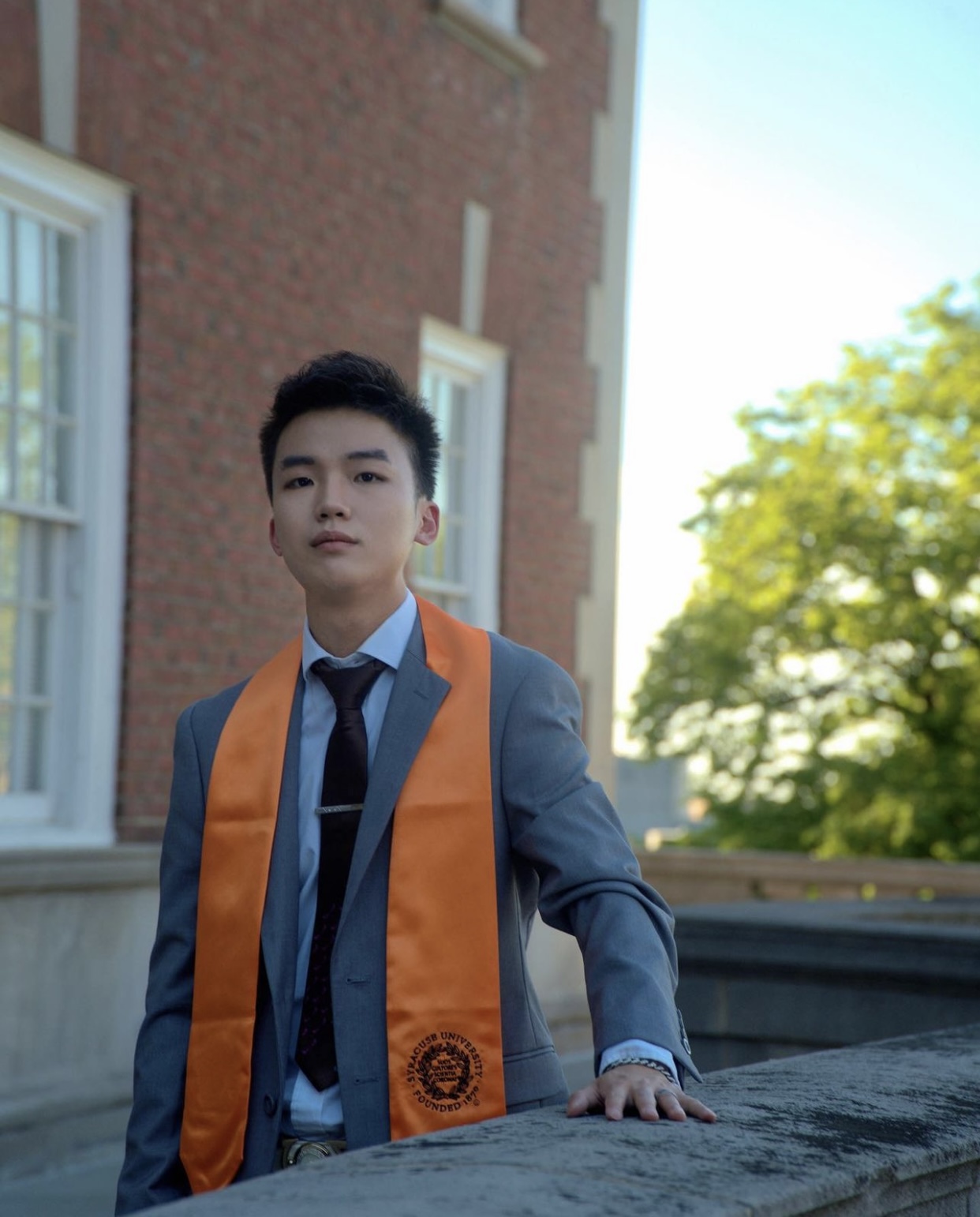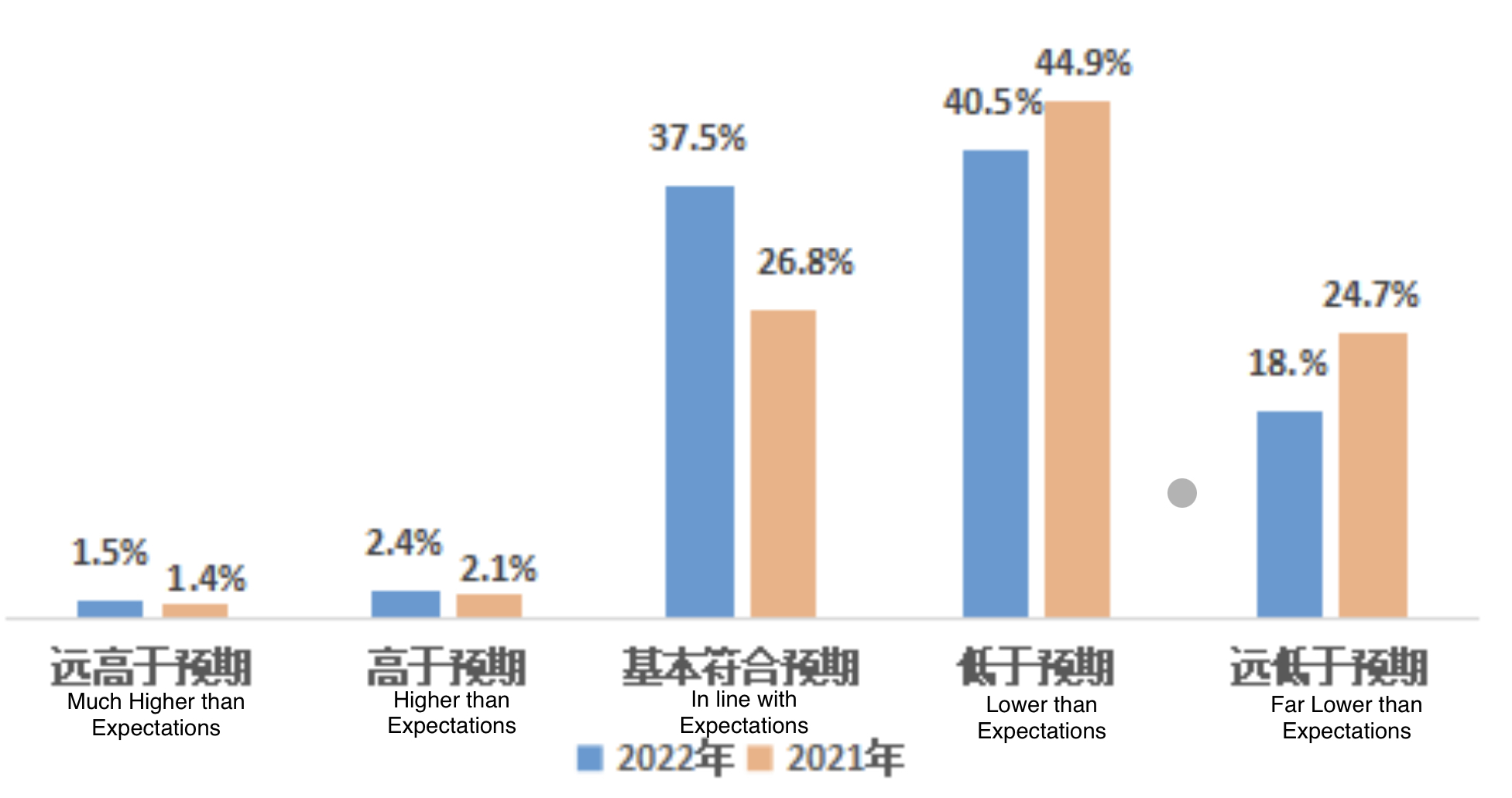When the ‘Gold' Loses Its Shine
Chinese international students job hunting dilemma
By Sophia Kong
There have been many discussions in China saying that studying abroad is just “gold plating”. International students, who were once seen as high-end talents ‘dipped in gold’, have become the target of certain misconceptions in recent years. This phenomenon has made the public believe that studying abroad is no longer useful, and that it only adds a thin layer of gold to one’s resume.
Education is the cornerstone of our personal and societal development, and is essential for success in today’s rapidly-changing world. It provides us with necessary knowledge and skills to be competent in life, and helps individuals better understand the world in order to make informed decisions.
In China, where the education system is highly competitive and there is a strong emphasis on academic achievement, students are expected to work hard and perform well on tests and exams, as academic achievement is often seen as the key to future success.
Many schools have been pressuring students to prepare well for the highly important standardised college entrance exam, known as Gaokao(高考).
They have to go through tons of mock tests, practices, and rounds of reviewing sessions for their final year in high school before taking the big exam. Therefore, many people in China choose to study abroad to escape the competitive system if the option presents itself.
The United States is usually the destination of choice because it is home to some of the world’s most prestigious universities, such as Harvard, Yale, and MIT. In the 2020 academic year, there were 317,299 Chinese international students enrolled in higher education in America, comprising over 50% of the total international student population of the year, according to data published by the U.S. government.
In the 2021 International Student Employment Survey Report, the students who participated in the study were asked why they chose to study abroad, and over 60% of them chose “to experience the culture and life of other countries and enrich their personal experience”. In particular, 32.8% of students chose to study abroad in 2022 because of “fierce competition for quality education resources in China”.
The studying-abroad fever among Chinese middle-class families is at an all-time high. More and more institutions have implemented specific courses like TOEFL, SAT, and A-level into their international programs, in hopes of helping their students apply to schools abroad. In their minds, studying abroad is supposed to land them a better job compared to the ones who only received local education.
However, with more people posessing an overseas education, the job market became filled with fresh graduates with a foreign diploma. It became more challenging and complex for Chinese overseas students returning to China to find a job. Eventually, the “gold-dipping” started becoming superficial and lost its value in the current Chinese job market.
“It is really worth it?”
Living in a generation where studying abroad is the norm, Jessica Song also studied abroad in the United States after attending an international high school in Beijing.
In her city, several international high schools have earned renowned reputations given their high college acceptance rate. The high tuition fee that the schools charged usually covered specified SAT/ACT courses, exchange programs, extracurricular activities, and college applications.
With the school-based support, many of Song’s cohorts ended up in their dream university. She also fulfilled her wish of attending University of California — Santa Barbara, one of America’s top 50 universities, where the weather is always warm and sunny and the air is filled with a nice ocean breeze.
Growing up, Song watched American TV shows and movies like High School Musical, Mean Girls, and Gossip Girls, which she found entertaining and dramatic. She used to imagine herself as the main characters, who could freely pursue their passions and dreams. She also loved watching the protagonist fall in love with the cutest boy and think to herself, “I want to experience that kind of freedom too!” because puppy love was an unspoken crime to her family.
As a young 19-year-old woman, she was ambitious, curious, and adventurous. She was looking forward to starting a new life in a strange land that she felt familiar with yet had never set foot on.
Tracing back the memories of her application process, Song said, “I have always had the impression that studying abroad in America should be a once in a lifetime experience and is the better option for myself, and it was the perfect opportunity for me to explore outside of China.”
On social media, there are people constantly sharing their overseas experiences and how it is beneficial to them in many aspects through posts and video blogs. Personally, it made her realise how big the world was and how endless the possibilities were, so she was sure that spending her next four years in California would lead her to finding the key to success.
With a great deal of excitement and nervousness, she left Beijing, the city where she called home for almost 20 years, and boarded the flight to a new country that was located seven thousand miles away.
It did not take her long to realize there were differences between expectation and reality.
It was Song’s first time experiencing a life without her parents’ care. She had to tackle all the small issues in her life independently by asking strangers or simply learning from the Internet. She found it difficult to build a deep connection with the local students because she often felt like an outsider and struggled to fully fit in. She had a hard time trying to catch up academically because she was not used to the American style of teaching and learning, which put a great emphasis on her active learning, critical thinking, and creativity. But these were only the minor inconveniences she encountered during the first two semesters, as things started to gradually get easier and easier the longer she lived there.
What struck her the hardest was when she returned to China after graduation looking for an internship in May of 2021, it did not go as smoothly as she expected initially.

Song at her Bachelors’ graduation ceremony. (Source: Jessica Song)
With a degree in communications, Song first applied for several internship positions in different media companies with a heart full of hope that her overseas experience would open up many paths. She was confident that she could secure an internship position within a month. However, she only received her first interview invitation after almost two months of searching and waiting.
“At first, I was turned down by several recruiters,” she said. “ I have been told that the recruitment process has been suspended because they already filled all the positions through the ‘Spring recruiting’ and suggested that I try again in Fall.”
The main recruitment seasons in China for fresh graduates are known as ‘Autumn enrollment’ and ‘Spring enrollment’, which happen in September until November and February until March respectively. During those two periods of time, big companies in China would recruit fresh graduates of all levels directly from schools, and students would try to seize information and opportunities to find their dream jobs.
However, there were other struggles she had to face. Compared to students who graduated from more famous universities like Havard and NYU, her university, UCSB was less well-known in China and was belittled by many recruiters.
After encountering unexpected obstacles, Song started feeling defeated but her family was very supportive of her journey.
The four years of college tuition, the living expenses, and the money for occasional trips in the US, added up to a big sum of expenses. According to the US National Center for Education Statistics, the average total annual cost for attending universities in the US is US$35,551, which makes it challenging for many middle-class families to sustain.
While student loans are popular among US students pursuing higher education in the US, they are not accessible to international students. Although specialised private education loans could be applied, they would still have to go through complex procedures like having cosigners and getting charged for an additional amount of interest.
Song explained, “I know how hard my parents worked to support my tuition and living expenses in the United States, so when the job hunting was not as smooth that I imagined it would be, I started to question my initial choice, like ‘Why did I choose this University instead of working harder to get into Ivy League schools such as Harvard or Columbia?’, ‘Will I ever live up to my parents’ expectations?’, ‘Am I even going to get a decent job in the future?’ And it all boiled down to one question — ‘Is my study abroad experience really worth it?’
With many questions and doubts, Song proceeded to apply for a master’s program at the University of Hong Kong, hoping the experience would help her develop her academic and career journey and give her some extra time to resolve her questions about her future paths.
The Job Hunting Dilemma
Although a good degree from a prestigious university in the US is still considered highly valuable in a competitive and talent-thirsty job market in China, there are reasons why recruiters would hesitate when they are dealing with a foreign diploma.
First, some students with overseas degrees may not be as familiar with Chinese cultural trends and new social norms after spending years indulging in American culture, which could be a disadvantage in certain industries or positions.
For example, some of them might not be familiar with the usage of the popular Chinese social media Douyin, Xiaohongshu, Zhihu and such, which are substantially crucial in fields such as communications, marketing, and advertising in China.
They also might lack relevant work experience in China and have a limited understanding of the local business environment and regulations.
Some Chinese employers may also perceive American degrees as being less rigorous or inflated in terms of grades, compared to Chinese degrees. This may be due to differences in teaching and assessment methods between American and Chinese universities.
In recent years, news reports about Chinese students paying for an international college degree and ghost writers during Covid have sparked controversies on the Internet, devaluing the studying abroad experience.
According to the International Student Employment Survey Report published in 2022 by the Ministry of Human Resources and Social Security, Chinese overseas students are not very optimistic about the job market in China either.
Even under the influence of the global epidemic and changes in international relations, the number of overseas students returning to China for job hunting in 2021 remains high, but the preference of Chinese domestic enterprises for returnees has weakened, and the pressure on returnees for job hunting has increased.
Although many Chinese cities have been encouraging and attracting overseas talents to return to China to work and start businesses, the number of returnees-priority positions in corporations in China has continued to decrease in recent years, with year-over-year increases of -25.4%, -23.5%, and -0.4% in 2019, 2020, and 2021, respectively.
According to the research, 83.1% of the returnees believe that it is more difficult to find a job in China, the first reason is “the increase of returnees to China and the increase of competition” (64%), the second reason is “the preference of domestic enterprises for returnees is weakened” (39.5%).
The study shows that 45% of returning returnees believe their current salary is lower than expected and 25% believe it is much lower than their expectations. Compared to 2020, both percentages have increased. The percentage of those who basically meet expectations for 2021 is 27%, down 11 percentage points from 2020. In addition, the percentage of people who think their salary is higher than expected has also decreased from 5% in 2020 to 2% in 2021. Thus, the majority of the returnees are less satisfied with their salary.
Of the returnees surveyed, the percentage of those who said they were below expectations increased by 4%, while the percentage of those who said they were far below expectations also increased by 2.5%.
Should I Stay or Should I Leave
Besides looking for more job opportunities, most Chinese international students intend to return home and reunite with their families after the completion of their studies because family values are deeply ingrained in Chinese culture.
Chinese parents will often make significant sacrifices to ensure that their children receive the best education possible, and children usually have a strong sense of filial piety, which is the respect and obedience that children owe to their parents. This concept is deeply rooted in Confucianism, which has had a profound influence on Chinese society for thousands of years.
In Chinese culture, it is expected that children will take care of their aging parents and grandparents and provide them with financial and emotional support. It is also common for multiple generations to live together in the same households.
As young people in China place a high value on family harmony, most international students never plan to stay abroad after they graduate. However, it is even more complicated for the students if they prefer to live in the US and plan to land a job there.
Chinese international students in the US have always been the victims of systemic racism for decades because they suffer from socioeconomic disadvantages as they need to earn a higher education degree to attain the same position as their white counterparts. They have been treated as an ‘outgroup’ and face workplace prejudice as some people believe their economic well-being is threatened by the Asians who are ‘stealing’ their jobs.
On the contrary, some people do not believe that anti-Asian racism still exists as they fall under the “Model Minority Myth”, labelling them as “successful” minorities who enjoy the same privilege as their fellow white citizens. Nevertheless, this idea is an equilibrium to color-blind racism, and it is a misconception that exaggerates their socioeconomic success.
Meanwhile, as the Covid-19 pandemic upended everyone’s life on a global scale, a spike of violent attacks on the Asian community in the United States has been stemming from harsh discrimination. According to data from the California Department of Justice, hate crimes against Asian Americans increased more than doubled in 2020. Asians across the country have been viciously attacked, robbed, and Asian-owned properties were vandalized and burned to the ground, which made the international students community also a target of hate during that period of time.
Moreover, the political tensions between the United States and China have further complicated the situation, making it even more difficult for the Chinese international students to stay.
The Middle and Turning Point
When Randy Chen was studying abroad in New York in 2018, he would go back home at least twice a year to help with his father’s business, and reunite with his family, despite having to take a 12-hour flight each time.
Growing up, Chen has always been told to think like a businessman, and to carry the greatest responsibility as the oldest son.
Chen’s parents believed that international exposure would ‘gold-dip’ his academic experience as well as provide him with life skills and a broader worldview. They saw this as an opportunity to help him reach his full potential and secure a brighter future.
As he was forced to stay in the United States for almost two years from 2020 to 2022 due to the Covid-19 pandemic, he was homesick and longed for his family.
“During that time, I was also told by my worried family how much they wish me to be closer to home. Nothing is more important than being around one’s family.”
During the first two years of his studies, Chen thought about the possibility of staying in the US and pursuing a local job after obtaining a degree. However, the Covid-19 pandemic and its impact on the economy have made the job market more competitive and uncertain globally.
After careful consideration, Chen applied to a master’s program at the Hong Kong University of Science and Technology.
“Hong Kong is like a middle point between China and the US,” Chen said, “The fusion between the West and the East that the city provides is a perfect balance for me. It is easier for me to adapt as well as makes me feel closer to home.

Chen graduates from his undergraduate degree in New Yok. (Source: Randy Chen)
Chen believes Hong Kong’s status as an international business center can attract professionals from all over the world and could provide more opportunities for him to make valuable connections and advance his career. He is also proficient in English, Mandarin, and Cantonese, which he believes will give him a competitive advantage in the job market in Hong Kong compared to both the US and China.
However, being in Hong Kong after spending a long time abroad can be challenging for him to reintegrate into the local culture and lifestyle, and adapt to different social norms. But the biggest insight that Chen has gained from his study abroad experience was the importance of adaptability and resilience.
Therefore, he is confident that he can immerse into this new culture, navigate language barriers, and overcome various challenges.
“Hong Kong is the turning point for me,” Chen said. “Although the future remains uncertain, I am looking forward to the opportunities that I could encounter in this city.”
2023, A New Positive Turn
In March of 2023, a new International Student Employment Survey Report was published, which showed that more Chinese international students want to return to China because they want to enjoy more convenience in life, especially after the positive change in China’s anti-covid policy after 2023, leading them to believe that economic activities of the country will recover faster and more job opportunities would be available as a result.
After China lifted its three years of strict anti-covid restrictions, the demand for overseas talents from China’s domestic enterprises has rapidly increased, and local governments also actively organised local enterprises to attract talents abroad. Data shows that in the first week after the Lunar New Year of 2023, the number of jobs position prioritizing returnees in February went up 11% compared to January and the number of returnees seeking jobs went up 27%.
With Hong Kong’s new Top Talent Pass Scheme, many Chinese international students who graduated from the top 100 universities in the world are moving to Hong Kong because they believe they would have much more opportunities and receive a higher salary there.
Many people are now skeptical about whether studying abroad is really worth it. However, according to the survey, nearly 70% of returnees believe that overseas experience is helpful to their work. Considering their expectation for salaries, nearly 40% of returnees who have returned to China for employment believe their current salary level is basically in line with expectations, which is a significant increase compared to 26.8% in 2021. There are also fewer people in 2022 who believe their salary is below expectation compared to 2021. This means that the satisfaction with salary of returnees returning to China for employment in 2022 has increased.

An overview of Chinese International student returnees and their satisfaction with their starting salary back in China. (Source: 2022 International Student Employment Survey Report)
The socioeconomic development in China is gradually stabilizing and improving, bringing more opportunities for returnees to go back to China for employment.
Song and Chen both believe that by studying in Hong Kong after gaining four years of overseas experience, they will eventually find their perfect careers with their global perspective in the right place at the right time.
Extra Credits
Advisor Sam Colombie
Editorial Director Hailey Yip
Multimedia Director Madeleine Mak
Multimedia Producer Madeleine Mak
Copy Editor Agnes Wang
Fact Checker Claire Kang
